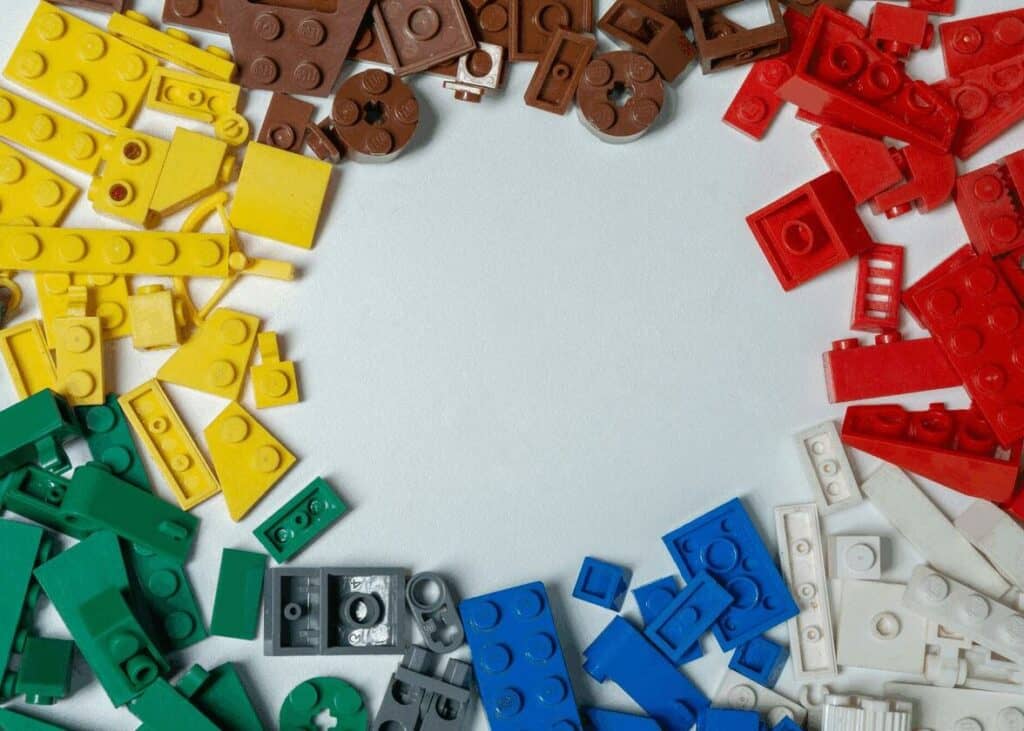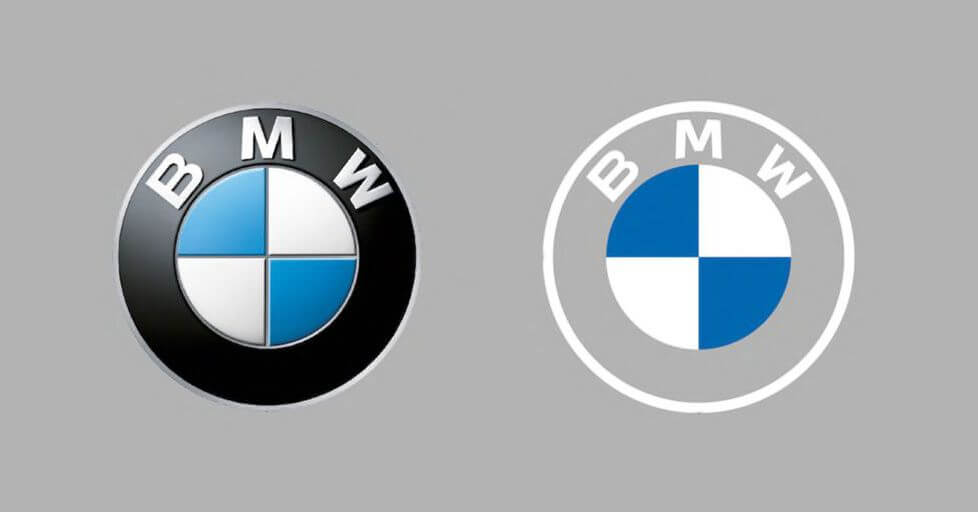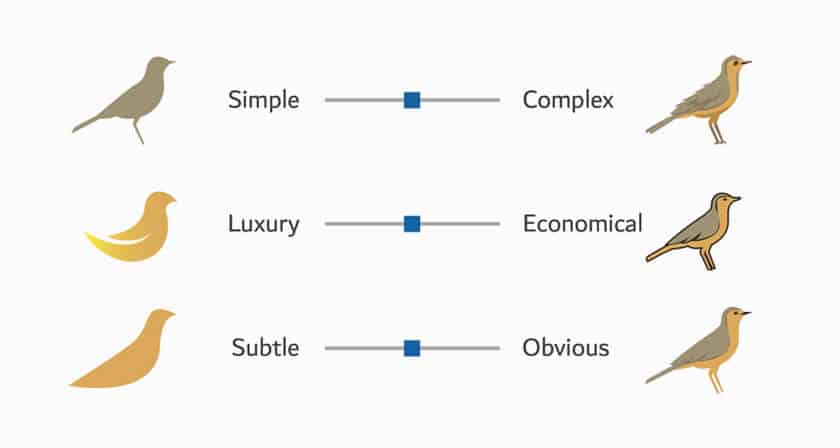The origin of LEGO
The LEGO Group was founded in the 1930s in Denmark by Ole Kirk Kristiansen. The company’s name is from a mixture of two Danish words ‘Leg Godt’ meaning ‘play well’, which later gave rise to the word LEGO. The brand became official in January 1936. You should know that before becoming the king of plastic bricks, LEGO toys were made of wood. But, after a fire in his warehouse in 1942, the founder changed his plans and work. Ole Kirk Kristiansen decided to make pieces of plastic that resembled bricks, which you could stack on top of each other. Today, LEGO has come a long way since their first creations with now theme parks and huge LEGO sets that represent scenes from pop culture movies!
The different LEGO logos over the years
LEGO is one of the brands that have undergone many logo changes, 16 times to be exact. Today, we are going to analyze a little less than a dozen. The LEGO company has gone through many redesigns in terms of colors and fonts.
The era of wooden toys
As mentioned earlier, LEGO started out making wooden toys. So, let’s discover the different logos that rocked this era.
The first logo dates back to the year the company was created, 1934. This logo was a wordmark logo. Meaning, it was only composed of the name of the company. As we can see, this is a very simple logo, black capital letters with an elegant serif font. This logo was not present on the toys, but on shipping labels for example.
Just two years later, the LEGO logo evolved. There were details added about the company. Which? First, the location where the toys were manufactured ‘Made in Billund’ and that the LEGO toys were made in a wood factory. So why specify this information? Simply to reassure customers about the origin of the toys, and to have a traditional image. The logo was still simple – in italic monochrome font with thin lines.
In 1946, 10 years later, the logo changed colors. This wouldn’t be the only novelty at LEGO. This is when Ole Kirk Kristiansen decided to get into small plastic bricks. It was therefore not one, but two logos that would appear.
The first logo looked like a box of toys and more precisely a train container. The company was very well known for its wooden train. It was a colorful mix of orange, yellow, red and black of capital letters in a sans-serif font. These colors were used to represent energy, entertainment and freshness, which is what we have written about on our page on the meaning of colors. This logo would exclusively be intended for wooden toys.
The second logo was reserved for the small plastic bricks, ‘Klodsen’. This logo had the same colors as on the previous logo but represented a more traditional style.
The era of plastic bricks
It was really in the 50s that plastic blocks began to catch on and become popular, resulting in a logo change!
This time it was a round logo with a thick black circle and white writing in capital letters that indicated the manufacturing location. LEGO was written in red capital letters which followed the shape of the circle.
There were subsequently many logos that followed one another. In 1952, the word LEGO was written in red on a yellow rectangular background.
After that, LEGO switched to a horizontal oval shape with a red background with white letters and a black outline around them. There were no less than 4 versions of these oval logos between 1954 and 1960. We note that at this time, the graphic identity had just been found but would still undergo some changes.
In the early 60s, the rectangular format appeared again. The word ‘System’ in yellow cursive would be written on the logo.
The LEGO logo today
It took two more versions to get to the logo we know today.
Between 1964 and 1972, LEGO’s writing was no longer placed in a rectangle, but in a square. Amazingly, next to this square would be another square with vertical bands of different colors, showing the diversity that LEGO had in their small bricks.
Finally, in 1972, LEGO found its logo, well almost! The multicolored square and the word ‘System’ was gone. The yellow that was used for ‘System’, would outline the word LEGO in white with an additional black outline. So, you had a double outline of yellow and black. The brand was established and solid!
The final version appeared in 1998, with very subtle changes. The black outline became thicker, the word LEGO leaned slightly to the right, turning the brand towards the future.
LEGO has not changed their logo since 1998 and is still popular with children as well as with adults who have grown up with this brand.
How can the LEGO logo inspire you?
First, when creating your logo, you should always keep a central element that will follow your brand in its evolution. For LEGO, it was the name, which is simple, short and distinctive.
Next, don’t be afraid to test different logos by doing redesigns from time to time. Of course, you don’t have to do it every 3 months, but for a particular event like the release of a new product and a new way of working. It may help you get to your final logo. If you’re happy with your original logo, you don’t have to redo it. Redesign your logo only if you feel the need.
Finally, we may worry about using bright colors from time to time, but LEGO is proof that it is possible to have a beautiful logo with colors that pop. We also have an article on how to use different colors to create a great-looking logo, which will help you create your brand image!
This content was originally published here.


